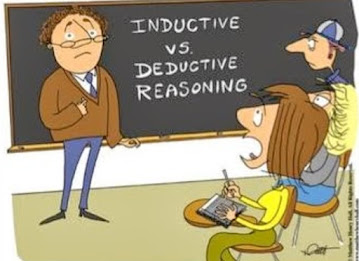Just a Theory
Hypothesis
The general public so widely misuses the words hypothesis , theory and law that scientists should stop using these terms, writes physicist Rhett Allain of Southeastern Louisiana University, in a blog post on Wired Science.
"I don't think at this point it's worth saving those words," Allain told LiveScience.
A hypothesis is a proposed explanation for something that can actually be tested. But "if you just ask anyone what a hypothesis is, they just immediately say 'educated guess,'" Allain said.
Just a theory?
Climate-change deniers and creationists have deployed the word "theory" to cast doubt on climate change and evolution.
"It's as though it weren't true because it's just a theory," Allain said.
That's despite the fact that an overwhelming amount of evidence supports both human-caused climate change and Drwin's theory of evolution .
Part of the problem is that the word "theory" means something very different in lay language than it does in science: A scientific theory is an explanation of some aspect of the natural world that has been substantiated through repeated experiments or testing. But to the average Jane or Joe, a theory is just an idea that lives in someone's head, rather than an explanation rooted in experiment and testing.
What is the mean of scientific theory?
A scientific theory is an explanation of an aspect of the natural world and universe that can be repeatedly tested and verified in accordance with the scientific method, using accepted protocols of observation , measurement, and evaluation of results. Where possible, theories are tested under controlled conditions in an experiment.In circumstances not amenable to experimental testing, theories are evaluated through principles of abductive reasoning. Established scientific theories have withstood rigorous scrutiny and embody scientific knowledge
A scientific theory differs from a scientific fact or scientific law in that a theory explains "why" or "how": a fact is a simple, basic observation, whereas a law is a statement (often a mathematical equation) about a relationship between facts. For example, Newton’s Law of Gravity is a mathematical equation that can be used to predict the attraction between bodies, but it is not a theory to explain how gravity works. Stephen Jay Gould wrote that "...facts and theories are different things, not rungs in a hierarchy of increasing certainty. Facts are the world's data. Theories are structures of ideas that explain and interpret facts."
What's the different between scientific law and theory ?
Scientific laws differ from theories in that they tend to describe a narrower set of conditions. A scientific law might explain the relationship between two specific forces or between two changing substances in a chemical reaction. Theories are typically more expansive, and they focus on the how and why of natural phenomena.
Both scientific laws and theories are considered scientific fact. However, theories and laws can be disproven when new evidence emerges. Certain accepted truths of Newtonian physics were partially disproven by Albert Einstein's theory of relativity. The work of Louis Pasteur disproved prior theories of disease in animals. If thorough scientific research upends a previously held belief, scientists must find new hypotheses that better describe how nature works.






Comments
Post a Comment